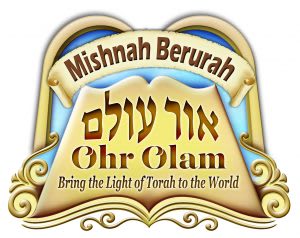Watering Trees, Plants and Flowers on Shabbos

Question: What are the Shabbos restrictions regarding watering trees, grass or flowers?
Discussion: It is forbidden min ha-Torah to water trees, potted plants, grass or flowers on Shabbos since watering contributes to the plant’s growth and is included in the melachah of Zorea, Planting. [According to some poskim,65 it is forbidden to pour water over the ground even in an area that contains no trees, grass or flowers, since softening and loosening the earth is forbidden because of Choresh, Plowing.66] There is a fundamental difference, however, between watering grass and flowers and watering trees: Grass and flowers only benefit if they are watered directly; they do not have the capacity to nourish from water that has been poured near them, even in close proximity to them67. Trees, however, have a far greater capacity of nourishment, and it is therefore forbidden to water the area adjacent to the trees as well. Some poskim go as far as forbidding watering the ground if there are trees within 30 [or even 50] feet away68.
Not only is it forbidden to pour pure water over vegetations on Shabbos, but included in this prohibition are all other liquids which may contribute to the plant’s growth, such as beer, soda, juice and most other water-based beverages.69 For this reason, Rama70 recommends that meals that include drinking should not take place in one’s backyard or garden [or unfloored sukkah] on Shabbos and Yom Tov, since it is extremely difficult to ascertain that liquids will not unintentionally spill on the grass or flowers or near trees. [As a further advisory, one should avoid eating fruits and vegetables outside after it has rained, since seeds that fall into the wet ground may sprout or take root, possibly violating Zorea.71]
A common application of the halacha regarding watering on Shabbos concerns unrolling a sukkah cover (shlack) after it has accumulated rainwater. When the cover is unrolled, the water will spill directly on the ground near the sukkah, thereby watering the nearby trees or grass below. The poskim offer several practical solutions to avoid this problem:
- Ask a non-Jew to unroll the sukkah cover. This is permitted since it is permitted to ask a non-Jew to do an unintentional act even if it will certainly cause a melachah to take place (pesik reisha).72
- Unroll the sukkah cover immediately after the rains have ceased, while the ground is still saturated with rainwater. This is permitted because the additional water coming off the sukkah cover will not be considered “watering” since the ground is already completely “watered”.73
- Situate the sukkah cover in an angle where the water will first land on a paved sidewalk or patio. Even though the water will then continue to flow towards the grass or trees, we are not concerned, as that will be considered an indirect action (koach sheini) which is permitted in this case.74
On erev Shabbos, it is permitted to turn on a water sprinkling system and allow it to continue watering the grass during Shabbos.75 It is also permitted to allow the automated sprinkling system, which is preset in advance to turn on and off at a specific time every night, to continue operating on Shabbos and Yom as well.76
65. Quoted by Mishnah Berurah 336: 26 and Sha’ar ha-Tziyun 18. See Chazon Ish, Shevi’is 18:2.
66. In addition, pouring water over earth could sometimes result in a violation of Lishah, Kneading; see Mishnah Berurah 321:57 and Shemiras Shabbos K’hilchasah 23, note 20.
67. Chasam Sofer (notes to Magen Avraham 252:20); Da’as Torah 336:3.
68. See Shemiras Shabbos K’hilchasah 26, note 15, quoting Rav S.Z. Auerbach.
69. Hard drinks such as whiskey or bourbon or very strong wine that contains no water do not aid in the growth of plants and are exempt from this prohibition; Kaf ha-Chayim 336:32. Possibly, oil and honey are included in that category as well; Mor u’Ketizah 336:3. [According to most poskim, it is also permitted to urinate over plants on Shabbos, as urine does not aid in their growth. Spitting, however, should be avoided.]
70. O.C. 336:3. See Aruch ha-Shulchan 336:22 who praises those who are careful with this recommendation.
71. O.C. 336:4 and Tifferes Yisrael (Kalkeles Shabbos, Zorea 1).
72. Be’er Moshe 8:198; Rav S. Miller (Shoshanas Yisrael 10:45), based on Mishnah Berurah 253:99.
73. Har Tzvi, O.C. 135; Az Nidberu 10:3-2; Chut Shani 10:4. See also Kaf ha-Chayim 336:29.
74. Shemiras Shabbos K’hilchasah 12, note 53, quoting Rav A.Z. Auerbach; Shoshanas Yisrael 10:45. Alternatively, place a tarp on the ground area where the water will initially land; Chashukei Chemed (Sukkah 28b).
75. O.C. 252:5.
76. Rav S.Z. Auerbach in Shulchan Shelomo 252:3, quoted in Shemiras Shabbos K’hilchasah 26, note 30, rules that using this system, while halachically permitted, is not recommended since preset automated systems are not well known to the public, and people might assume that the system was turned on Shabbos (mari’s ayin). This ruling was issued many decades ago, when this system was not widespread. Today, especially in the U.S., the usage of this system is commonplace, as almost all communities irrigate their grass and flowers using a preset sprinkling system. Mari’s ayin is no longer an issue.
